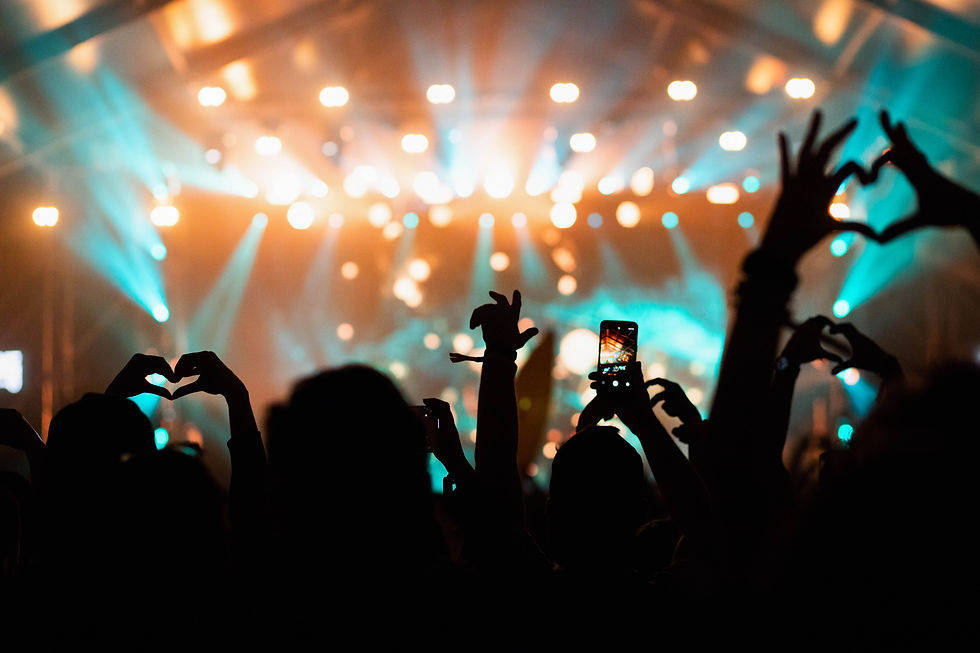DIY Collaborations: Tips for Independent Musicians
- Steve Henao
- Jan 16, 2024
- 3 min read
Updated: Mar 22, 2025
Over the years, I’ve worked with artists who felt like they were doing it all alone—writing, producing, promoting, performing. And I get it. The DIY path gives you full control over your music, but it can also feel isolating. One of the biggest game-changers I’ve seen? Collaboration.
Teaming up with other independent musicians doesn’t just lighten the load—it sparks creativity, opens new doors, and builds community. You don’t have to sign to a label to grow your reach. You just need the right people around you.

The Rise of DIY Music Collabs
The music industry isn’t what it used to be. You don’t need a big label or studio to make an impact anymore. Independent artists are finding success by doing things their own way—and collaboration is at the heart of that movement.
I’ve seen indie musicians link up online, drop a single, and see it take off—sometimes with nothing more than a shared Google Drive folder and a few Zoom calls. And I’ve watched local bands partner on live shows, split the promotion, and double their audiences overnight.
What used to be seen as “side hustling” is now a full-on, respected path. DIY doesn’t mean doing everything by yourself—it means building the right team, on your terms.
Where to Find Collaborators
There are so many places to connect with other artists now—seriously, we’ve never had more tools.
Here’s what’s worked best in my experience:
• Instagram and TikTok – Use hashtags related to your genre or scene and comment on other artists’ posts. Real connections start here.
• SoundBetter and Vocalizr – These sites help you hire or team up with vocalists, producers, and engineers.
• Reddit communities – Subreddits like r/WeAreTheMusicMakers and r/IndieMusicFeedback are packed with people looking to collab.
• Facebook groups – Still a go-to for genre-specific communities and collab opportunities.
• Collaborative playlists and live sessions – Reach out to artists who are promoting similar music. Suggest a feature, remix, or even just a live Q&A together on IG Live.
What matters most is being clear and genuine. Share your vibe, your goals, and what you’re looking for in a collab. Some of the best partnerships I’ve helped set up started with a simple DM and a shared playlist.
The Challenges No One Talks About
Let’s be honest—collaborating isn’t always easy. I’ve seen projects fall apart because expectations weren’t clear or communication was off.
Here are a few lessons I’ve learned the hard way (and seen others run into too):
• Talk about roles early on: Who’s doing what? Who’s mixing the track? Who’s handling promotion?
• Discuss credits and ownership: Agree on how royalties and rights are split before the track is released. Use a simple split sheet or written agreement.
• Set deadlines: Life gets busy. Having a loose timeline helps everyone stay accountable.
• Use shared tools: Google Drive, Trello, Dropbox, or even Notion can help everyone stay organized.
I worked with two artists once who were perfect creatively—but things stalled because they didn’t talk about release plans. Once we got a shared calendar and agreement in place, they got back on track and dropped a killer single that ended up getting playlisted on Spotify.
Building a Supportive DIY Community
The real magic of collaboration isn’t just about putting out songs—it’s about building a network.
When you collaborate, you’re not just making music—you’re cross-promoting, sharing fanbases, and supporting each other’s releases. I’ve seen musicians shout each other out on socials, perform live together, or co-write and release EPs from different corners of the world.
Here’s what I recommend:
• Stay active on social media – Not just for self-promo. Support other artists. Comment, share, connect.
• Create a homepage or “collab hub” on your website – Feature your past collabs, link to your EPK, and make it easy for people to reach out.
• Host mini collab challenges – I’ve seen artists do this: one writes a hook, another adds a verse, and they post it as a series. Fun, fast, and engaging.
This kind of creative community can keep you inspired—and honestly, it makes the music industry feel a lot less lonely.
Final Thoughts
Being a DIY artist doesn’t mean going it alone. It means having the freedom to choose who you work with, when, and how. Collaboration gives you fresh ideas, shared exposure, and the chance to grow alongside people who believe in the same grind you do.
Every artist I’ve worked with who embraced collaboration came out stronger—musically and mentally. You don’t lose independence by collaborating. You gain momentum.
So whether you’re dropping your first demo or planning your third EP, take a look around. Reach out. Start the conversation. That next collab could be the one that changes everything.


Comments